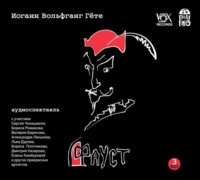 полная версия
полная версияLetters from Switzerland and Travels in Italy
Sept. 30.
Towards evening I again rambled, without a guide, into the remotest quarters of the city. The bridges here are all provided with stairs, that gondolas, and even larger vessels, may pass conveniently under the arches. I sought to find my way in and out of this labyrinth, without asking anybody, and, on this occasion also, only guiding myself by the points of the compass. One disentangles one's self at last, but it is a wonderful complication, and my manner of obtaining a sensible impression of it, is the best. I have now been to the remotest points of the city, and observed the conduct, mode of life, manners, and character of the inhabitants; and in every quarter they are different. Gracious Heaven! – What a poor good sort of animal man is, after all!
Most of the smaller houses stand immediately on the canals, but there are here and there quays of stone, beautifully paved, along which one may take a pleasant walk between the water, and the churches, and palaces. Particularly cheerful and agreeable is the long stone quay on the northern side, from which the islands are visible, especially Murano, which is a Venice on a small scale. The intervening lagunes are all alive with little gondolas.
Sept. 30. Evening.
To-day I have enlarged my notions of Venice by procuring a plan of it. When I had studied it for some time, I ascended the tower of St. Mark, where an unique spectacle is presented to the eye. It was noon, and the sun was so bright that I could see places near and distant without a glass. The tide covered the lagunes, and when I turned my eyes towards what is called the Lido (this is a narrow strip of earth, which bounds the lagunes), I saw the sea for the first time with some sails upon it. In the lagunes themselves some gallies and frigates are lying, destined to join the Chevalier Emo, who is making war on the Algerines, but detained by unfavorable winds. The mountains of Padua and Vicenza, and the mountain-chain of Tyrol, beautifully bound the picture between the north and west.
October 1.
I went out and surveyed the city from many points of view, and as it was Sunday, I was struck by the great want of cleanliness in the streets, which forced me to make some reflections. There seems to be a sort of policy in this matter, for the people scrape the sweepings into the corners, and I see large ships going backwards and forwards, which at several points He to, and take off the accumulation. They belong to the people of the surrounding islands, who are in want of manure. But, however, there is neither consistency nor strictness in this method, and the want of cleanliness in the city is the more unpardonable, as in it, as much provision has been made for cleaning it, as in any Dutch town.
All the streets are paved – even those in the remotest quarters, with bricks at least, which are laid down lengthwise, with the edges slightly canting: the middle of the street where necessary is raised a little, while channels are formed on each side to receive the water, and convey it into covered drains. There are other architectural arrangements in the original well-considered plan, which prove the intention of the excellent architects to make Venice the most cleanly, as well as the most singular of cities. As I walked along I could not refrain from sketching a body of regulations on the subject, anticipating in thought some superintendent of police, who might act in earnest. Thus one always feels an inclination to sweep one's neighbour's door.
Oct. 2, 1786.
Before all things I hastened to the Carità. I had found in Palladio's works that he had planned a monastic building here, in which he intended to represent a private residence of the rich and hospitable ancients. The plan, which was excellently drawn, both as a whole and in detail, gave me infinite delight, and I hoped to find a marvel. Alas! scarcely a tenth part of the edifice is finished. However, even this part is worthy of that heavenly genius. There is a completeness in the plan, and an accuracy in the execution, which I had never before witnessed. One ought to pass whole years in the contemplation of such a work. It seems to me that I have seen nothing grander, nothing more perfect, and I fancy that I am not mistaken. Only imagine the admirable artist, born with an inner feeling for the grand and the pleasing, now, for the first time, forming himself by the ancients, with incredible labour, that he may be the means of reviving them. He finds an opportunity to carry out a favorite thought in building a convent, which is destined as a dwelling for so many monks, and a shelter for so many strangers, in the form of an antique private residence.
The church was already standing and led to an atrium of Corinthian columns. Here one feels delighted, and forgets all priestcraft. At one end, the sacristy, at another, a chapter-room is found, while there is the finest winding stair-case in the world, with a wide well, and the stone-steps built into the wall, and so laid, that one supports another. One is never tired of going up and down this stair-case, and we may judge of its success, from the fact that Palladio himself declares that he has succeeded. The fore-court leads to the large inner-court. Unfortunately, nothing is finished of the building which was to surround this, except the left side. Here there are three rows of columns, one over the other; on the ground-floor are the halls, on the first story is an archway in front of the cells, and the upper story consists of a plain wall with windows. However, this description should be illustrated by a reference to the sketches. I will just add a word about the execution.
Venice
Only the capitals and bases of the columns, and the key-stones of the arches, are of hewn stone; all the rest is – I will not say of brick, but-of burned clay. This description of tile I never saw before. The frieze and cornice are of the same material, as well as the parts of the arch. All is but half burnt, and lastly the building is put together with a very little lime. As it stands it looks as if it had been produced at one cast. If the whole had been finished, and it had been properly rubbed up and coloured, it would have been a charming sight.
However, as so often happens with buildings of a modern time, the plan was too large. The artist had pre-supposed not only that the existing convent would be pulled down, but also that the adjoining houses would be bought, and here money and inclination probably began to fail. Kind Destiny, thou who hast formed and perpetuated so much stupidity, why didst thou not allow this work to be completed!
Oct. 3.
The church Il Redentore is a large and beautiful work by Palladio, with a façade even more worthy of praise than that of S. Giorgio. These works, which have often been engraved, must be placed before you, to elucidate what is said. I will only add a few words.
Palladio was thoroughly imbued with the antique mode of existence, and felt the narrow, petty spirit of his own age, like a great man who will not give way to it, but strives to mould all that it leaves him, as far as possible, into accordance with his own ideas. From a slight perusal of his book I conclude that he was displeased with the continued practice of building Christian churches after the form of the ancient Basilica, and, therefore, sought to make his own sacred edifices approximate to the form of the antique temple. Hence arose certain discrepancies, which, as it seemed to me, are happily avoided in Il Redentore, but are rather obvious in the S. Giorgio. Volckmann says something about it, but does not hit the nail on the head.
The interior of Il Redentore is likewise admirable. Everything, including even the designs of the altars, is by Palladio. Unfortunately, the niches, which should have been filled with statues, are glaring with wooden figures, flat, carved, and painted.
October 3.
In honour of S. Francis, S. Peter's capuchins have splendidly adorned a side altar. There was nothing to be seen of stone but the Corinthian capitals; all the rest seemed to be covered with tasteful but splendid embroidery, in the arabesque style, and the effect was as pretty as could be desired. I particularly admired the broad tendrils and foliage, embroidered in gold. Going nearer, I discovered an ingenious deception. All that I had taken for gold was, in fact, straw pressed flat, and glued upon paper, according to some beautiful outlines, while the ground was painted with lively colours. This is done with such variety and tact, that the design, which was probably worked in the convent itself, with a material that was worth nothing, must have cost several thousand dollars, if the material had been genuine. It might on occasion be advantageously imitated.
On one of the quays, and in front of the water I have often remarked a little fellow telling stories in the Venetian dialect, to a greater or less concourse of auditors. Unfortunately I cannot understand a word, but I observe that no one laughs, though the audience, who are composed of the lowest class, occasionally smile. There is nothing striking or ridiculous in the man's appearance, but, on the contrary, something very sedate, with such admirable variety and precision in his gestures, that they evince art and reflection.
October 3.
With my plan in my hand I endeavored to find my way through the strangest labyrinth to the church of the Mendicanti. Here is the conservatorium, which stands in the highest repute at the present day. The ladies performed an oratorio behind the grating, the church was filled with hearers, the music was very beautiful, and the voices were magnificent. An alto sung the part of King Saul, the chief personage in the poem. Of such a voice I had no notion whatever; some passages of the music were excessively beautiful, and the words, which were Latin, most laughably Italianized in some places, were perfectly adapted for singing. Music here has a wide field.
Venice
The performance would have been a source of great enjoyment, if the accursed Maestro di Capella had not beaten time with a roll of music against the grating, as conspicuously as if he had to do with school-boys, whom he was instructing. As the girls had repeated the piece often enough, his noise was quite unnecessary, and destroyed all impression, as much as he would, who, in order to make a beautiful statue intelligible to us, should stick scarlet patches on the joints. The foreign sound destroys all harmony. Now this man is a musician, and yet he seems not to be sensible of this; or, more properly speaking, he chooses to let his presence be known by an impropriety, when it would have been much better to allow his value to be perceived by the perfection of the execution. I know that this is the fault of the French, but I did not give the Italians credit for it, and yet the public seems accustomed to it. This is not the first time that that which spoils enjoyment, has been supposed to belong directly to it.
October 3.
Yesterday evening I went to the Opera at the S. Moses (for the theatres take their name from the church to which they lie nearest); nothing very delightful! In the plan, the music, and the singers, that energy was wanting, which alone can elevate opera to the highest point. One could not say of any part that it was bad, but the two female actresses alone took pains, not so much to act well, but to set themselves off and to please. That is something, after all. These two actresses have beautiful figures, and good voices, and are nice, lively, compact, little bodies. Among the men, on the other hand, there is no trace of national power, or even of pleasure, in working on the imaginations of their audience. Neither is there among them any voice of decided brilliancy.
The ballet, which was wretchedly conceived, was condemned as a whole, but some excellent dancers and danseuses, the latter of whom considered it their duty to make the spectators acquainted with all their person charms, were heartily applauded.
October 5.
To-day, however, I saw another comedy, which gave me more pleasure. In the ducal palace I heard the public discussion of a law case. It was important, and, happily for me, was brought forward in the holidays. One of the advocates had all the qualifications for an exaggerated buffo. His figure was short and fat, but supple; in profile his features were monstrously prominent. He had a stentorian voice, and a vehemence as if everything that he said came in earnest from the very bottom of his heart. I call this a comedy, because, probably, everything had been already prepared when the public exhibition took place. The judges knew what they had to say, and the parties what they had to expect. However, this plan pleases me infinitely more than our hobbling law affairs. I will endeavor to give some notion of the particulars, and of the neat, natural, and unostentatious manner in which everything takes place.
In a spacious hall of the palace the judges were sitting on one side, in a half circle. Opposite to them, in a tribune which could hold several persons, were the advocates for both parties; and upon a bench immediately in front of them, the plantiff, and defendant in person. The advocate for the plaintiff had descended from the tribune, since there was to be no controversy at this day's sitting. All the documents, on both sides, were to be read, although they were already printed.
A lean clerk, in a black scanty gown, and with a thick bundle in his hand, prepared to perform the office of a reader. The hall was completely crammed with persons who came to see and to hear. The point of law itself, and the persons whom it concerned, must have appeared highly important to the Venetians.
Trust-estates are so decidedly secured in Venice, that a property once stamped with this character, preserves it for ever, though it may have been divested ages ago by appropriations or other circumstances, and though it may have passed through ever so many hands. When the matter comes into dispute the descendants of the first family recover their right, and the property must be delivered up.
Venice
On this occasion the discussion was highly important, for the action was brought against the doge himself, or rather against his wife, who veiled by her zendal, or little hood, sat only at a little distance from the plaintiff. She was a lady of a certain age, of noble stature, and with well-formed features, in which there was something of an earnest, not to say fretful character. The Venetians make it a great boast that the princess in her own palace, is obliged to appear before them and the tribunal.
When the clerk began to read, I for the first time clearly discerned the business of a little man who sat on a low stool behind a small table opposite the judges, and near the advocates. More especially I learned the use of an hour-glass, which was placed before him. As long as the clerk reads, time is not heeded, but the advocate is only allowed a certain time, if he speaks in the course of the reading. The clerk reads, and the hour-glass lies in a horizontal position, with the little man's hand upon it. As soon as the advocate opens his mouth, the glass is raised, and sinks again, as soon as he is silent. It is the great duty of the advocate to make remarks on what is read, to introduce cursory observations in order to excite and challenge attention. This puts the little Saturn in a state of the greatest perplexity. He is obliged every moment to change the horizontal and vertical position of the glass, and finds himself in the situation of the evil spirits in the puppet-show, who by the quickly varying "Berliche, Berloche" of the mischievous Hanswurst6, are puzzled whether they are to come or to go.
Whoever has heard documents read over in a law-court, can imagine the reading on this occasion, – quick and monotonous, but plain and articulate enough. The ingenious advocate contrives to interrupt the tedium by jests, and the public shows its delight in his jokes by immoderate laughter. I must mention one, the most striking of those I could understand. The reader was just reciting the document, by which, one, who was considered to have been illegally possessed of it, had disposed of the property in question. The advocate bade him lead more slowly, and when he plainly uttered the words: "I give and bequeath," the orator flew violently at the clerk and cried: "What will you give? What will you bequeath? you poor starved-out devil, nothing in the world belongs to you?" "However," – he continued, as he seemed to collect himself – "the illustrious owner was in the same predicament. He wished to give, he wished to bequeath that which belonged to him no more than to you." A burst of inextinguishable laughter followed this sally, but the hour-glass at once resumed its horizontal position. The reader went mumbling on, and made a saucy face at the advocate; but all these jokes are prepared beforehand.
Oct. 4.
I was yesterday at the play, in the theatre of S. Luke, and was highly pleased. I saw a piece acted extempore in masks, with a great deal of nature, energy, and vigour. The actors are not, indeed, all equal; the pantaloon is excellent, and one of the actresses, who is stout and well-built, speaks admirably, and deports herself cleverly, though she is no extraordinary actress. The subject of the piece is extravagant, and resembled that which is treated by us under the name of Der Verschlag (the partition). With inexhaustible variety it amused us for more than three hours. But even here the people is the base upon which everything rests, the spectators are themselves actors, and the multitude is melted into one whole with the stage. All day long the buyer and the seller, the beggar, the sailor, the female gossip, the advocate and his opponent, are living and acting in the square and on the bench, in the gondolas and in the palaces, and make it their business to talk and to asseverate, to cry and to offer for sale, to sing and to play, to curse and to brawl. In the evening they go into the theatre, and see and hear the life of the day artificially put together, prettily set off, interwoven with a story, removed from reality by the masks, and brought near to it by manners. In all this they take a childish delight and again shout and clap, and make a noise. From day to night, – nay, from midnight to midnight, it is always the same.
I have not often seen more natural acting than that by these masks. It is such acting as can only be sustained by a remarkably happy talent and long practice.
While I am writing this, they are making a tremendous noise on the canal under my window, though it is past midnight. Whether for good or for evil, they are always doing something.
October 4.
I have now heard public orators; viz., three fellows in the square and on the stone-bench, each telling tales after his fashion, two advocates, two preachers, and the actors, among whom I must especially commend the pantaloon. All these have something in common, both because they belong to one and the same nation, which, as it always lives in public, always adopts an impassioned manner of speaking, and because they imitate each other. There is besides a marked language of gesticulations, with which they accompany the expressions of their intentions, views, and feelings.
Venice
This day was the festival of S. Francis, and I was in his church Alle Vigne. The loud voice of the capuchin was accompanied by the cries of the salesmen in front of the church, as by an antiphone. I stood at the church-door between the two, and the effect was singular enough.
Oct. 5.
This morning I was in the arsenal, which I found interesting enough, though I know nothing of maritime affairs, and visited the lower school there. It has an appearance like that of an old family, which still bustles about, although its best time of blossom and fruit has passed. By paying attention to the handicraftsmen, I have seen much that is remarkable, and have been on board an eighty-four gun ship, the hull of which is just completed.
Six months ago a thing of the sort was burned down to the water's edge, off the Riva dei Schiavoni. The powder-room was not very full, and when it blew up, it did no great damage. The windows of the neighbouring houses were destroyed.
I have seen worked the finest oak from Istria, and have made my observations in return upon this valuable tree. That knowledge of the natural things used by man as materials, and employed for his wants, which I have acquired with so much difficulty, has been incalculably serviceable in explaining to me the proceedings of artists and artisans. The knowledge of mountains and of the stone taken out of them has been to me a great advance in art.
Oct. 5.
To give a notion of the Bucentaur in one word, I should say that it is a state-galley. The older one, of which we still have drawings, justified this appellation still more than the present one, which, by its splendour makes us forget its original.
I am always returning to my old opinions. When a genuine subject is given to an artist, his productions will be something genuine also. Here the artist was commissioned to form a galley, worthy to carry the heads of the Republic, on the highest festivals in honour of its ancient rule on the sea; and the problem has been admirably solved. The vessel is all ornament; we ought to say, it is overladen with ornament; it is altogether one piece of gilt carving, for no other use, but that of a pageant to exhibit to the people its leaders in right noble style. We know well enough that a people, who likes to deck out its boats, is no less pleased to see their rulers bravely adorned. This state-galley is a good index to show what the Venetians were, and what they considered themselves.
Oct. 5. Night.
I came home laughing from a tragedy, and must at once make the jest secure upon paper. The piece was not bad, the author had brought together all the tragic matadors, and the actors played well. Most of the situations were well known, but some were new and highly felicitous. There are two fathers, who hate each other, sons and daughters of these severed families, who respectively are passionately in love with each other, and one couple is even privately married. Wild and cruel work goes on, and at last nothing remains to render the young people happy, but to make the two fathers kill each other, upon which the curtain falls amid the liveliest applause. Now the applause becomes more vehement, now "fuora" was called out, and this lasted until the two principal couples vouchsafed to crawl forward from behind the curtain, make their bow, and retire at the opposite side.
Venice
The public was not yet satisfied, but went on clapping and crying: "i morti!" till the two dead men also come forward and made their bow, when some voices cried "bravi i morti!" The applause detained them for a long time, till at last they were allowed to depart. The effect is infinitely more droll to the eye-and-ear-witness, who, like me, has ringing in his ears the "bravo! bravi!" which the Italians have incessantly in their mouths, and then suddenly hears the dead also called forward with this word of honour.
We of the north can say "good night" at any hour, when we take leave after dark, but the Italian says: "Felicissima notte" only once, and that is when the candles are brought into a room. Day and night are thus divided, and something quite different is meant. So impossible is it to translate the idioms of any language! From the highest to the lowest word all has reference to the peculiarities of the natives, in character, opinions, or circumstances.
Oct. 6.
The tragedy yesterday taught me a great deal. In the first place, I have heard how the Italians treat and declaim their Eleven-syllable iambics, and in the next place, I have understood the tact of Gozzi in combining masks with his tragic personages. This is the proper sort of play for this people, which likes to be moved in a rough fashion. It has no tender, heart-felt sympathy for the unfortunate personage, but is only pleased when the hero speaks well. The Italians attach a great deal of importance to the speaking, and then they like to laugh, or to hear something silly.









